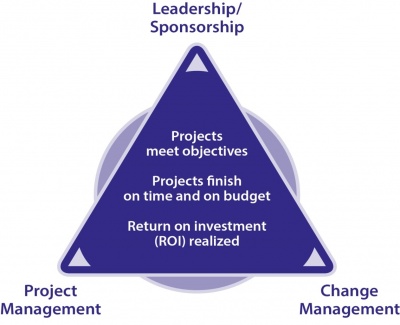Change Management
Change Management Defined
Change Management: Change management is defined as the methods and manners in which a company describes and implements change within both its internal and external processes.
When conducting any significant WFM enhancement or transformation, the success of the program will be directly influenced by the strength of your change management framework developed. While most WFM teams would think to implement a program management team, often the importance of change management, and the associated disciplines is overlooked. Programs leveraging the proper change management framework are cited as having 6x the effectiveness of accomplishing the program's objectives (Prosci 2018 Benchmarking data).
Requirements: What Do We Need For An Effective Change Management Framework?
Whether you are using an existing framework, such as the Prosci Methodology, or developing your own framework, there are several critical concepts behind the workforce management function that mandate you leverage a solid change management framework for your WFM transformation:
- WFM principles and practices have the potential to greatly impact a company's operational expenses, the customer experience, and in many organizations, WFM will influence top-line revenue.
- WFM teams often are associated with a negative perception from frontline staff; WFM represents the organization trying to squeeze the last ounce of productivity out of workers.
- Leadership often overemphasizes two roles for the WFM team to manage; expense and experience (through maintaining SL availability), without equal emphasis on internal customer experience (the call handling employees).
WFM teams will always have a significant challenge in proposing and implementing change, and without that change management framework, will struggle with adoption.
While your WFM Strategy may take several forms, any WFM transformation should be founded on a strategy that places equal empahsis between three elements;
- Expense: accurate forecasting, optimal scheduling, and proactive variance management in real-time management
- External Experience: Maintaining availability by delivering service level, 1 interval at a time.
- Internal Experience: Designing and managing processes that balance expense management with employee satisfaction
WFM experts are not likely to be well-versed in change management.
Conceptually, forecasting means the same thing to most people: the idea of telling the future based on some existing knowledge. How we work within the WFM model to generate accurate forecasts requires us to base forecasting activity on solid methodology. It's important that we follow common guidelines so that when we aggregate forecasting data to make business decisions, we can do so as accurately as possible. For this reason, we've developed a model with 4 dimensions that defines "World Class Forecasting".
Key concepts behind forecasting include generating and utilizing:
- A set of established roles and responsibilities
- A solid process with clearly defined purpose
- A collaboration mentality, with all other departments within the organization (use of wiki!)
- Clean data, both historical & judgmental derived from collaboration
- Adoption of Data Governance M&Ps to maintain clean data
- Support from call center, regional, division and corporate management
- Technical Tools (WFM Software) and Knowledgeable Resources
Key Forecasting Definitions
Forecasting requires common definitions behind the terms used in call center environments. The most important of these terms associated with this activity are:
